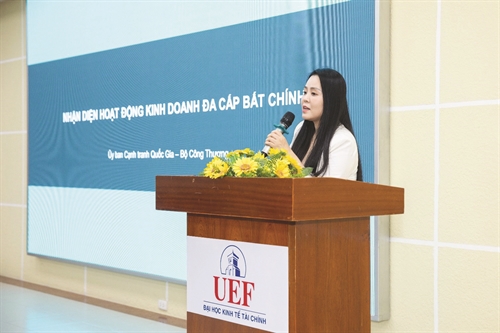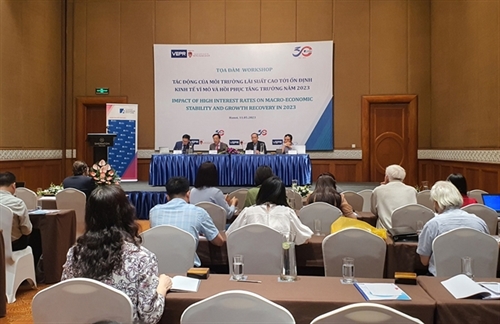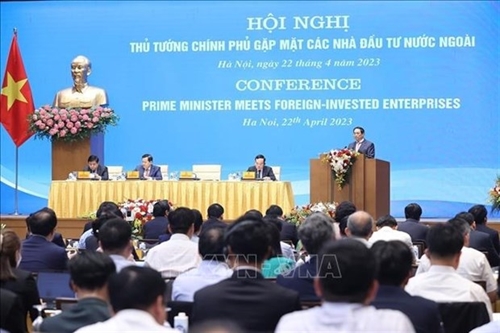Dr Giang Bui Duc[1]
Hanoi School of Business and Management (HSB)
Vietnam National University, Hanoi
Law 59/2020/QH14 on Enterprises dated June 17, 2020 (as revised in 2022) (the LOE) creates a general framework regulating structure, governance and management of companies established in Vietnam. This article will first outline various bodies of all the types of companies recognized by the LOE and then briefly present major bodies of limited liability companies (LLCs) and joint stock companies (JSCs) (or shareholding companies) which are the most widely used corporate forms before addressing the matter of contract approval by the highest decision-making bodies of those companies.
General
The following table summarizes various bodies of a company under the LOE:
The members or shareholders of a company delegate the day-to-day business management to the Director Chief Executive Officer and therefore possess no automatic management rights themselves. However, they can play a significant role in the corporate governance. Depending on shares held and rights attached, members and shareholders may attend meetings, vote on resolutions, and even seek to remove the Chief Executive Officer and the legal representative or dissolve the company. Members or shareholders can therefore seek to protect their rights and interests and hold the directors to account.
Multiple-member LLCs
Pursuant to Article 54 of the LOE:
“1. A multiple-member LLC has a Members’ Council, a Chairman of the Members’ Council and a Chief Executive Officer.
2. A multiple-member LLC being a state-owned enterprise as specified in Article 88.1(b) of this Law and any subsidiary of a state-owned enterprise as specified in Article 88.1 of this Law must have an Inspection Committee; other cases shall be decided by the company.
3. A multiple-member LLC must have at least one (1) legal representative holding the position of Chairman of the Members’ Council or Chief Executive Officer. If its charter does not contain any relevant provision, then the Chairman of the Members’ Council is its legal representative.”
Article 55.1 of the LOE provides:
“The Members’ Council is the highest decision-making body of the company and composed of all individual members of the company and authorized representatives of institutional members of the company.”.
As provided in Article 55.2 of the LOE, the Members’ Council has the following rights and obligations:
“(a) To make decisions on annual business plans and development strategies of the company;
(b) To make decisions on any increase or reduction of the charter capital and on the timing and method of raising additional capital; to make decisions on issuance of bonds;
(c) To make decisions on projects for investment and development of the company; and on market development, marketing and technology transfer solutions;
(d) To approve lending and borrowing agreements, contracts for sale of assets and other contracts as stated in the charter of the company and valued at fifty (50) percent or more of the total value of assets recorded in the most recently published financial statements of the company, or a smaller percentage or value as stated in the charter of the company;
(dd) To elect, remove or discharge the Chairman of the Members’ Council; to make decisions on the appointment, removal or discharge of, or signing and termination of contracts with, the Chief Executive Officer, the Chief Accountant, inspectors and other managers specified in the charter of the company;
(e) To make decisions on salary, remuneration, bonus and other benefits for the Chairman of the Members’ Council, the Chief Executive Officer, the Chief Accountant and other managers specified in the charter of the company;
(g) To approve annual financial statements, plans on use and distribution of profits or plans on dealing with losses of the company;
(h) To make decisions on the organizational and managerial structure of the company;
(i) To make decisions on the establishment of subsidiary companies, branches and representative offices;
(k) To make amendments or supplementations to the charter of the company;
(l) To make decisions on reorganization of the company;
(m) To make decisions on dissolution or petition for bankruptcy of the company;
(n) Other rights and obligations in accordance with this Law and the charter of the company”.
The powers of running the company are conferred upon the company’s Chief Executive Officer and legal representatives. They possess the authority to act as the company’s agent and perform the tasks required. As the number of shareholders in a company increases, it would be impractical or impossible for each to be involved in the management and control of the company’s affairs and hence they appoint the Chief Executive Officer and legal representative who may exercise the powers conferred on the position by the company. They may also wish to remove them from the position and hence they are provided with the mechanisms to achieve this.
Under Article 63.1 of the LOE, the Chief Executive Officer is the person who manages the day-to-day business of the company and is responsible to the Members’ Council for the exercise of his rights and the performance of his obligations.
Pursuant to Article 63.2 of the LOE, his rights and obligations include:
“(a) To organize the implementation of resolutions and decisions of the Members’ Council;
(b) To make decisions on all matters relating to the day-to-day business of the company;
(c) To organize the implementation of business and investment plans of the company;
(d) To issue rules on internal management of the company unless otherwise specified in the charter of the company;
(dd) To appoint, remove or discharge company managers, except for the positions within the authority of the Members’ Council;
(e) To sign contracts in the name of the company, except for those within the authority of the Chairman of the Members’ Council;
(g) To make recommendations on the organizational structure of the company;
(h) To submit annual financial statements to the Members’ Council;
(i) To recommend plans on use and distribution of profits or dealing with losses in business;
(k) To recruit employees;
(l) Other rights and obligations as specified in the charter of the company, in resolutions and decisions of the Members’ Council, and in his employment contract.”
Under Article 65.1 of the LOE, the Inspection Committee is composed of one to five inspectors. The term of office of an inspector must not exceed five years and inspectors may be reappointed for an unlimited number of terms of office. The main role of the Inspection Committee is to supervise the management performed by the Chief Executive Officer and ensure the integrity of the financing reporting. Nevertheless, the law is unclear on whether it is empowered to supervise the authorized representatives of members of the Members’ Council.
JSCs
Article 137.1 of the LOE recognizes three corporate governance models for JSCs as follows:
The first model consists of a General Meeting of Shareholders, a Board of Directors, an Inspection Committee and a Chief Executive Officer.
The second model consists of a General Meeting of Shareholders, a Board of Directors, and a Chief Executive Officer (the Inspection Committee is therefore not required) if the company has less than 11 shareholders and shareholders being entities together own less than 50 percent of total shares of the company.
The third one consists of a General Meeting of Shareholders, a Board of Directors, and a Chief Executive Officer provided that in this case, at least 20 percent of total members of the Board of Directors must be independent members and there must be an Auditing Committee under the Board of Directors. The organizational structure, functions and duties of the Auditing Committee are regulated in the company charter or in operational rules of the Auditing Committee issued by the Board of Directors.
The third model is like Anglo-American model with unitary boards and has been increasingly used in practice, notably by public companies.
Pursuant to Article 155.2 of the LOE, unless otherwise provided by the law on securities, an independent member of the Board of Directors must satisfy the following criteria and conditions:
“(a) Not being a person currently working for the company, the parent company or any subsidiary of the company; or not being a person having worked for the company, the parent company or any subsidiary of the company for at least three years;
(b) Not being a person who is currently entitled to salary or remuneration from the company, except for allowances which members of the Board of Directors are entitled to in accordance with regulations;
(c) Not being a person whose spouse, natural or adoptive parent, child, adopted child or sibling is a major shareholder of the company, or a manager of the company or its subsidiary;
(d) Not being a person directly or indirectly owning at least one per cent of total voting shares in the company;
(e) Not being a person who has been a member of the Board of Directors or the Inspection Committee of the company for at least five years, except in the case of appointment for two consecutive terms of office”.
Where the company has only one legal representative, the Chairman of the Board of Directors or the Chief Executive Officer will act as the legal representative of the company. Where it is not stated in the charter, the Chairman of the Board of Directors will also act the legal representative of the company. Where the company has more than one legal representative, the Chairman of the Board of Directors and the Chief Executive Officer will automatically act as the legal representatives of the company (Article 137.2 of the LOE).
Under Article 138.1 of the LOE, the General Meeting of Shareholders will include all shareholders entitled to vote and be the highest decision-making body of a JSC.
Pursuant to Article 138.2 of the LOE, the General Meeting of Shareholders has the following rights and obligations:
“(a) To adopt developmental directions of the company;
(b) To make decisions on classes of shares and total number of shares of each class which may be offered for sale; to make decisions on annual dividend rates for each class of shares;
(c) To elect, remove or discharge members of the Board of Directors and inspectors;
(d) To make investment decisions or decisions on sale of assets valued at 35 or more percent of the total value of assets recorded in the most recent financial statements of the company, except where the charter of the company states another percentage or value;
(dd) To make decisions on amendments or supplementations to the charter of the company;
(e) To approve annual financial statements;
(g) To make decisions on redemption of more than 10 percent of the total shares of each class already sold;
(h) To consider and deal with breaches by members of the Board of Directors and inspectors which cause damage to the company and its shareholders;
(i) To make decisions on reorganization and dissolution of the company;
(k) To decide the budget or total remuneration, bonuses and other benefits of the Board of Directors and the Inspection Committee;
(l) To approve internal governance rules, and operation rules of the Board of Directors and of the Inspection Committee;
(m) To approve the list of independent audit firms, decide on an independent audit firm to inspect operations of the company, and remove the independent auditor when deeming it necessary;
(n) Other rights and obligations in accordance with this Law and the charter of the company.”
Article 153.1 of the LOE provides that:
“The Board of Directors is the body managing the company and has the full authority, in the name of the company, to make decisions and to exercise the rights and perform the obligations of the company, except for those falling under the authority of the General Meeting of Shareholders.”.
This provision still appears to confuse corporate management with corporate governance when addressing the role of the Board of Directors and this is a pity.
With respect to its composition, the Board of Directors has between 3 and 11 members. The charter of the company must specify the number of members of the Board of Directors (Article 154.1 of the LOE). The term of office of its members must not exceed five years; and they may be re-elected for an unlimited number of terms of office. One individual may only be elected as an independent member of the Board of Directors of one company for no more than two consecutive terms of office (Article 154.2 of the LOE).
Under Article 153.2 of the LOE, the Board of Directors has the following rights and obligations:
“(a) To make decisions on medium-term developmental strategies and plans, and on annual business plans of the company;
(b) To recommend classes of shares and total number of shares of each class which may be offered for sale;
(c) To make decisions on sale of unsold shares within the number of shares of each class which may be offered for sale; to make decisions on raising of additional funds in other forms;
(d) To make decisions on selling prices of shares and bonds of the company;
(dd) To make decisions on redemption of shares in accordance with Articles 133.1 and 133.2 of this Law;
(e) To make decisions on investment plans and investment projects within the authority and limits provided by law;
(g) To make decisions on market expansion, marketing and technology solutions;
(h) To approve purchase, sale, borrowing and lending contracts and other contracts and transactions valued at 35 or more percent of the total value of assets recorded in the most recent financial statements of the company, except where the charter of the company states another percentage or value, and contracts and transactions within the decision-making authority of the General Meeting of Shareholders as specified in Clause 2(d) of Article 138 and Clauses 1 and 3 of Article 167 of this Law;
(i) To elect, remove or discharge the Chairman of the Board of Directors; to appoint, remove, and sign or terminate contracts with the Director or the Director General and other key managers as stated in the charter of the company; to make decisions on salaries, remuneration, bonuses and other benefits of such managers; to appoint authorized representatives to participate in the Members’ Councils or General Meetings of Shareholders of other companies, and to make decisions on remuneration and other benefits of such persons;
(k) To supervise and direct the Chief Executive Officer and other managers in their work of conducting the day-to-day business of the company;
(l) To make decisions on the organizational structure and internal management rules of the company, to make decisions on the establishment of subsidiaries, branches and representative offices and the capital contribution to or purchase of shares of other enterprises;
(m) To approve the agenda and contents of documents for meetings of the General Meeting of Shareholders; to convene meetings of the General Meeting of Shareholders or to obtain opinions in order for the General Meeting of Shareholders to adopt resolutions;
(n) To submit annual financial statements to the General Meeting of Shareholders;
(o) To recommend dividend rates to be paid, to make decisions on the time limit and procedures for payment of dividends or for dealing with losses incurred in business operations;
(p) To recommend reorganization or dissolution of the company, or to request bankruptcy of the company;
(q) Other rights and obligations in accordance with this Law and the charter of the company.”
The Chief Executive Officer shall manage the day-to-day business of the company, be supervised by the Board of Directors, and be responsible to the Board of Directors and before law for the exercise of his delegated powers and the performance of his delegated obligations (Article 162.2 of the LOE).
The Board of Directors shall appoint one of its members or employ another person to act as the Chief Executive Officer of the company (Article 162.1 of the LOE). The term of office of the Chief Executive Officer must not exceed five years and the Chief Executive Officer may be re-appointed for an unlimited number of terms of office.
Under Article 162.3 of the LOE, the Chief Executive Officer of a JSC has the following powers and obligations:
“(a) To make decisions on all issues relating to the day-to-day business operations of the company which do not fall within the authority of the Board of Directors;
(b) To organize the implementation of resolutions and decisions of the Board of Directors;
(c) To organize the implementation of business plans and investment plans of the company;
(d) To make recommendations with respect to the plan on organizational structure and the internal management rules of the company;
(dd) To appoint, remove or discharge managers of the company, except for those falling under the authority of the Board of Directors;
(e) To make decisions on salaries and other benefits for employees of the company, including managers who may be appointed by the Chief Executive Officer;
(g) To recruit employees;
(h) To make recommendations on plans on payment of dividends and on dealing with business losses;
(i) Other powers and obligations as provided by law, the charter of the company and resolutions and decisions of the Board of Directors.”
In case the company is (i) a public company, or (ii) a state-owned enterprise, of which more than 50 percent of the charter capital or total shares with voting rights are held by the State, the Chairman of the Board of Directors may not act concurrently as the Chief Executive Officer of the company (Article 156.2 of the LOE).
The Inspection Commitee is formed by the General Meeting of Shareholders with between three and five inspectors for the maximum term of office of five years (which may be renewed for unlimited times) (Articles 138.2(c) and 168.1 of the LOE). Its missions and duties are specified in Article 170 of the LOE and include inter alia to supervise the Board of Directors and the Chief Executive Officer and to ensure the integrity of the financial reporting.
The Board of Directors may appoint where necessary a company secretary (Article 156.5 of the LOE). In case the JSC is a public company, the Board of Directors shall appoint a person in charge of corporate governance (Article 41.3(b) of Securities Law 54/2019/QH14 dated November 26, 2019).
Contract approval
Two types of contracts that require specific corporate approval are contracts with related parties and substantial property transactions. Failure to obtain such approval may lead to their nullity (Articles 67.3 and 167.5 of the LOE).
Contracts with related parties
Contracts with related parties are deemed sensitive and risky for the company.
In case of a multiple-member LCC, Article 67.1 of the LOE provides that the Members’ Council’s approval is required for the validity of contracts and transactions with:
“(a) A member or his authorized representative; the Chief Executive Officer or the legal representative of the company;
(b) An affiliated person of any person specified in Item (a) above;
(c) A manager of the parent company, or a person having authority to appoint managers of the parent company;
(d) An affiliated person of any person specified at Item (c) above.”
Any member of the Members’ Council related to the parties to such contract or transaction may not vote (Article 67.2 of the LOE).
Likewise, pursuant to Article 167.1 of the LOE, approval of the Board of Directors or General Meeting of Shareholders is required for the validity of contracts and transactions between a JSC and:
“(a) Shareholders or authorized representatives of shareholders being entities holding more than 10 percent of ordinary shares of the company, and their affiliated persons;
(b) Members of the Board of Directors, Chief Executive Officer and their affiliated persons;
(c) Enterprises to be declared by members of the Board of Directors, inspectors, the Chief Executive Officer and other managers of the company as specified in Article 164.2 of the LOE.”
The Board of Directors has the authority to approve contracts or transactions featuring in the above list and valued at under 35 percent of the total value of assets recorded in the most recent financial statements of the company, or a smaller percentage or value as stated in the charter of the company while the General Meeting of Shareholders will approve (i) those valued at least 35 percent and and (ii) contracts for and transactions of borrowing, lending or sale of assets valued at more than 10 percent of the total value of assets of the company stated in the most recent financial statements between the company and shareholders owning 51 percent or more of the total voting shares or their affiliated persons (Articles 167.2 and 167.3 of the LOE). Shareholders with interests relating to the parties to the contract or transaction do not have the right to vote (Article 167.4 of the LOE).
An affiliated person is defined in Article 4.23 of the LOE as: “any individual or organization with a direct or indirect relationship with an enterprise in the following cases:
(a) [Affiliated person] means the parent company, a manager and the legal representative of the parent company, and any person with the authority to appoint the manager(s) of the parent company;
(b) [Affiliated person] means any subsidiary, and any manager and the legal representative of the subsidiary;
(c) An individual or organization, or a group of individuals or organizations with the ability to control activities of such enterprise via ownership or takeover of shares or capital contribution portions or via issuance of decisions of the company;
(d) A manager of the enterprise, the legal representative, and an inspector;
(dd) Spouse, natural or adoptive parent, father-in-law, mother-in-law, child, adopted child, son-in-law, daughter-in-law, sibling, brother-in-law or sister-in-law of any manager of the company, of the legal representative, of any inspector, or of any member and shareholder holding a controlling portion of capital contribution or controlling shares;
(e) An individual who is the authorized representative of any company or organization specified at Items (a), (b) and (c) of this Clause;
(g) An enterprise in which any individual, company or organization specified at Items (a), (b), (c), (d), (dd) and (e) of this Clause owns shares at a level entitling it to control issuance of decisions of the company”.
Under Article 195.1 of the LOE:
“A company is deemed to be the parent company of another company if it falls into one of the following cases:
(a) It owns more than 50 percent of the charter capital or the total number of ordinary shares of such another company;
(b) It has the right to directly or indirectly make decisions on appointment of the majority or all members of the Board of Directors, the Chief Executive Officer of such another company;
(c) It has the right to make decisions on amendments or supplementations to the charter of such another company.”
Substantial property transactions
Under Article 55.2(d) of the LOE, the Members’ Council of a multiple-member LLC shall approve lending and borrowing agreements, contracts for sale of assets and other contracts as specified in the charter of the company and valued at 50 percent or more of the total value of assets recorded in the most recently published financial statements of the company, or a smaller percentage or value as specified in the charter of the company.
Under Article 153.2(h) of the LOE, the Board of Directors has the authority to approve contracts for purchase, sale, borrowing, lending and other contracts and transactions valued at 35 percent or more of the total value of assets recorded in the most recent financial statements of the company, except where the charter of the company states some other percentage or value.
The LOE addresses various aspects of corporate structure, governance and management for all types of companies and especially for LLCs and JSCs. Its rules are completed by the specialized laws including the securities law. There is however some room for improvement to better this area of corporate law.-
[1] The author can be contacted at: buiducgiang@hsb.edu.vn.









